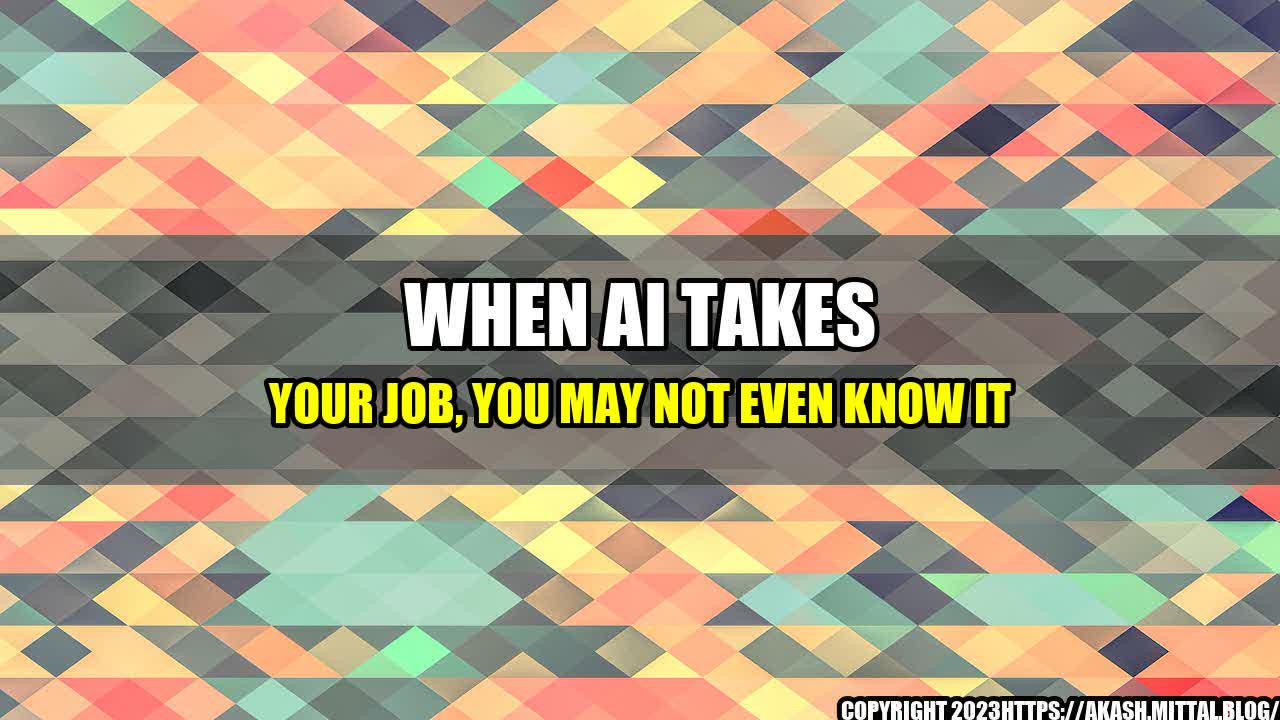
It was a typical day at the supermarket for Jane, a cashier who has been working there for over a decade. As she scans a customer's items, she notices the machine next to her doing the same thing. Her curiosity gets the best of her as she overheard a colleague referring to it as an AI-powered cashier. She brushes it off thinking, "I've been here for years, they wouldn't replace me with a machine."
Little did she know, her job was at risk.
Artificial intelligence, or AI, has been making a significant impact on our lives, mostly in a positive way. However, with the advancement of technology, AI is beginning to replace jobs that were once exclusive to humans. In fact, a recent report by the World Economic Forum found that AI will displace 75 million jobs by 2022. With that being said, the jobs that are being replaced by AI aren't always apparent, and you could be next.
To better understand how AI is taking over jobs, let's take a look at some quantifiable examples:
1. Healthcare: A study done by Stanford University shows that AI can be used to interpret breast cancer images with a 94% accuracy rate, compared to 88% by humans. With the proper software, radiologists could soon be replaced.
2. Transportation: Self-driving cars and trucks are predicted to take over the transportation industry. A recent study by the International Transport Forum found that autonomous trucks could lead to the loss of 2.5 million trucking jobs in the US alone.
3. Retail: As mentioned earlier, AI-powered cashiers are becoming more common. In fact, Amazon has opened a store with no cashiers at all. This change alone could potentially eliminate millions of retail jobs.
As futuristic as these examples may sound, the reality is that the transition to AI-powered jobs is already happening. So how do you know if your job is at risk, and what can you do about it? Here are three key takeaways:
1. Stay informed: Keep up to date with the latest AI advancements affecting your industry. Attend workshops, seminars, and join relevant groups to learn as much as you can.
2. Upskill: If you find out that your job may be at risk, start learning new skills that will make you more marketable, even if it means taking courses online or offline. This will help you to stay relevant and in-demand.
3. Be flexible: Consider changing careers or finding other opportunities that are less likely to be taken over by AI. Fields such as healthcare, education, and social services are less prone to AI disruption.
In conclusion, the impact of AI on the job market is inevitable. However, it doesn't mean that everyone should panic and start looking for a new job right away. By staying informed, upskilling, and being flexible, individuals can still thrive in this new era of technology and job displacement.
References:
World Economic Forum. (2018). Future of Jobs Report 2018. Retrieved from https://www.weforum.org/reports/the-future-of-jobs-report-2018
International Transport Forum. (2019). The Impact of Driverless Trucks on the Workforce: A Literature Review. Retrieved from https://www.itf-oecd.org/sites/default/files/docs/impact-driverless-trucks-workforce.pdf
Stanford University. (2020). AI matches breast cancer experts at detecting lymph node tumors. Retrieved from https://med.stanford.edu/news/all-news/2020/06/ai-matches-breast-cancer-experts-at-detecting-lymph-node-tumors.html
Hashtags: #AI #JobDisplacement #FutureOfWork #Upskilling #CareerAdvice
Keywords: job displacement, AI-powered cashiers, self-driving cars, healthcare, education, social services
Category: Technology & Business
Curated by Team Akash.Mittal.Blog
Share on Twitter Share on LinkedIn